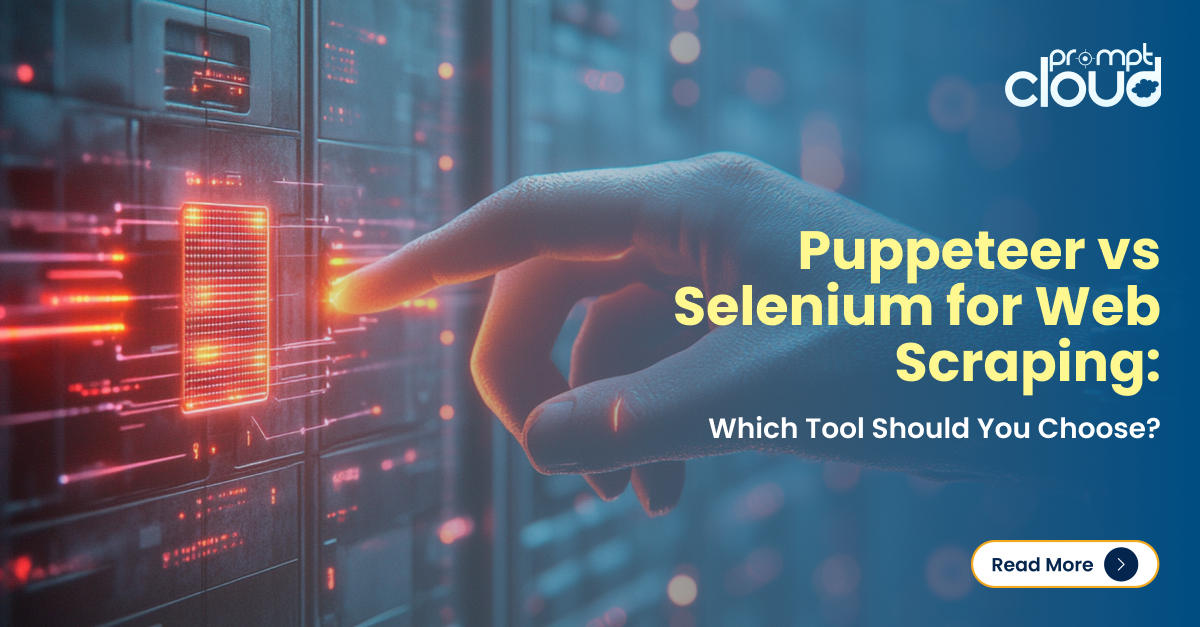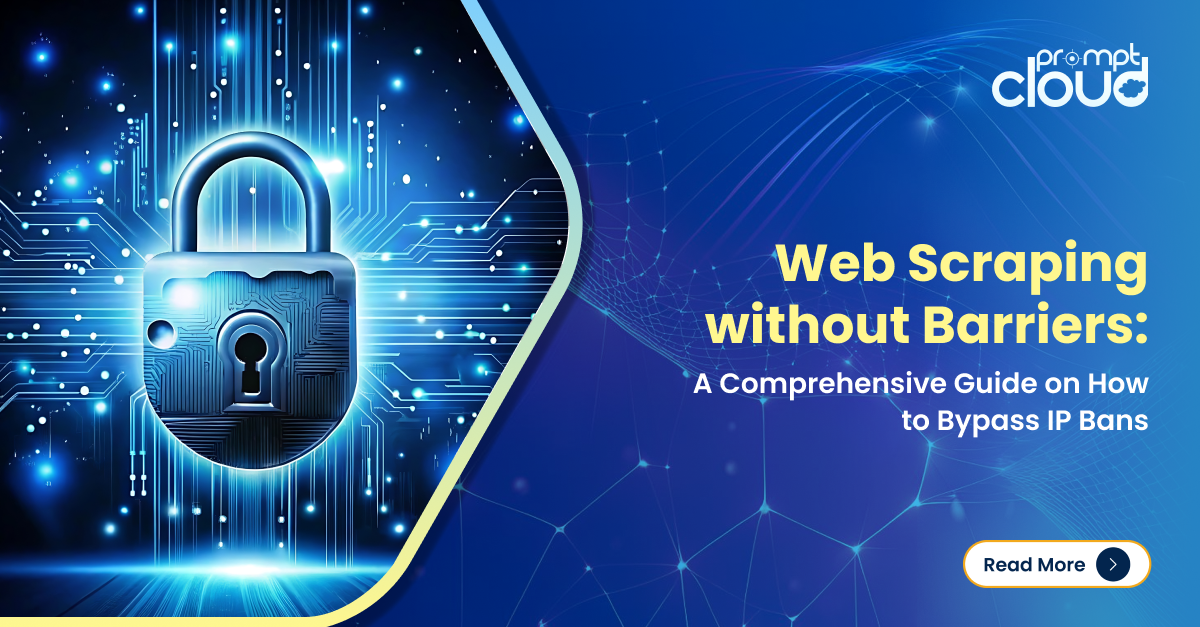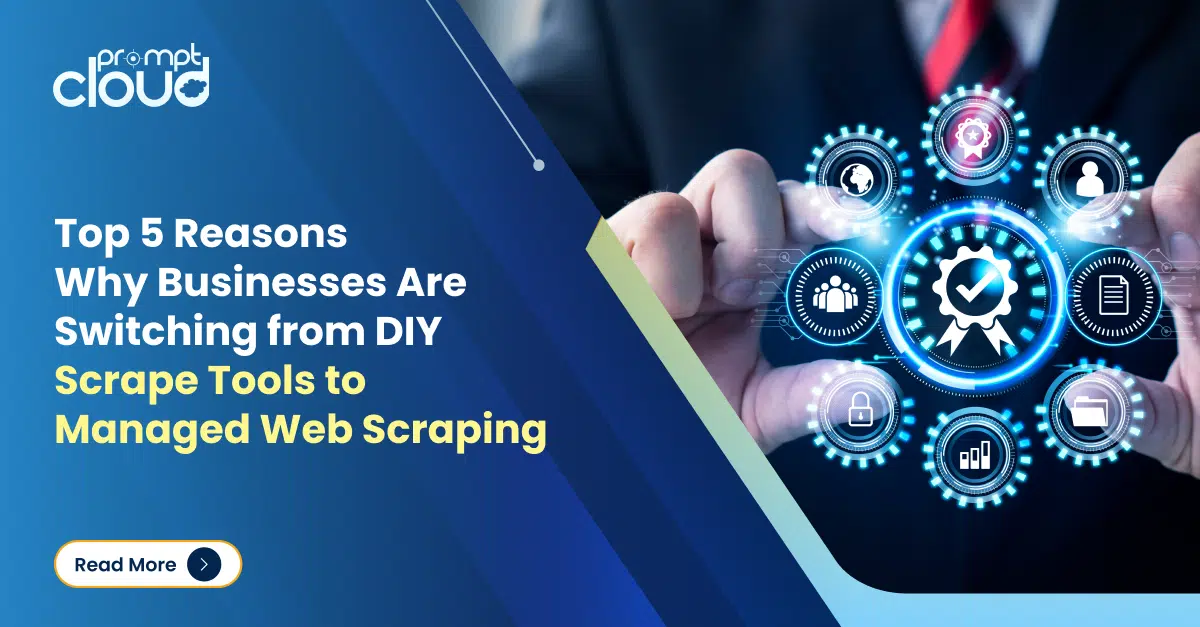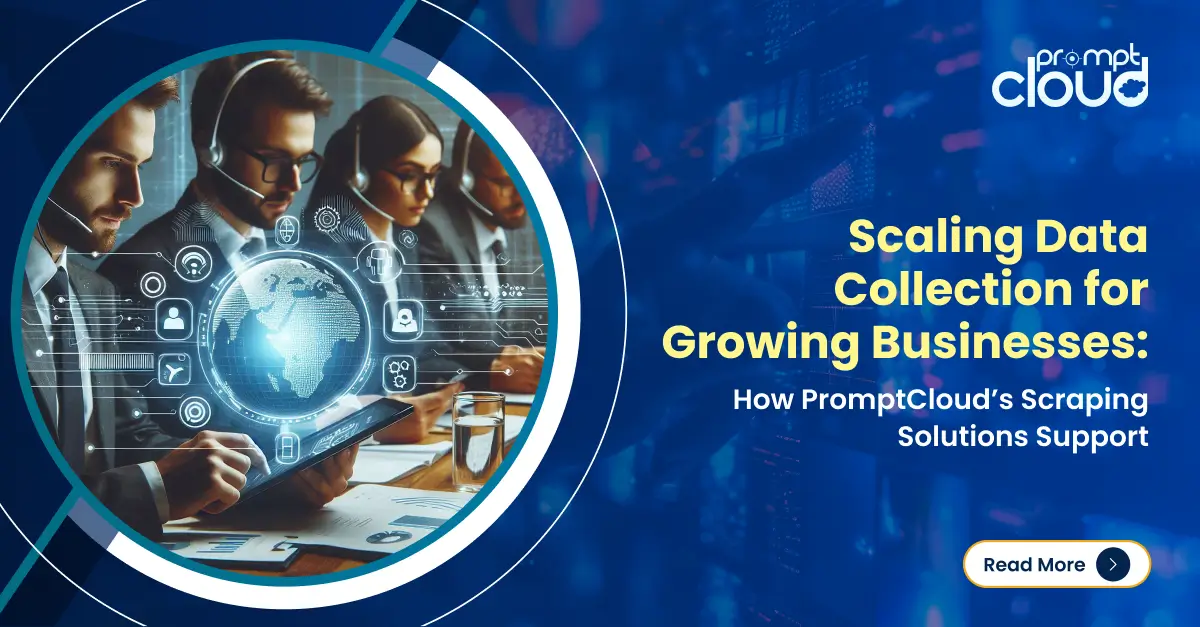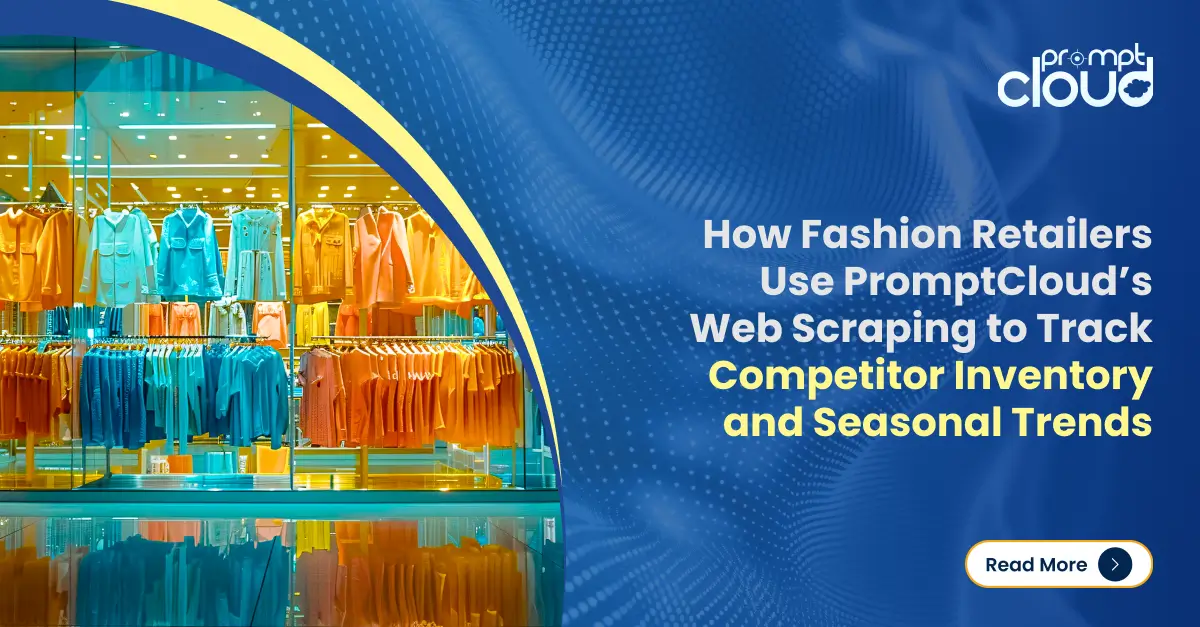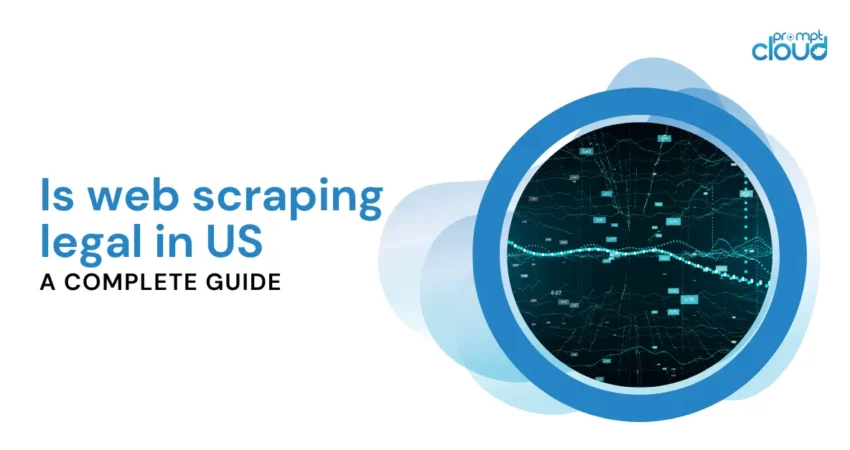
Web scraping, often referred to as web harvesting or web data extraction, is a process used to extract large amounts of data from websites. This method automates the data collection process and enables the collection of data at a scale that would be impractical or impossible to do manually. Web scraping works by using software to access a web page, interpret the page’s content, and then extract specific data points from it.
This technique is particularly valuable in situations where data is not readily accessible through APIs or other data formats. The data collected via web scraping can vary widely, from text and images to more complex data structures like tables and databases.
Importance in Today’s Digital Landscape
In today’s digital era, where data is often described as the new oil, web scraping has become an essential tool for businesses, researchers, and developers. It offers several critical advantages:
- Data-Driven Decision Making: With the vast amount of information available online, web scraping allows organizations to gather relevant data efficiently, enabling them to make more informed decisions.
- Market Research and Competitive Analysis: Businesses use web scraping to monitor competitor pricing, product offerings, and market trends, allowing them to stay competitive in their industry.
- SEO and Digital Marketing: Web scraping aids in monitoring SEO rankings and online presence, which is crucial for digital marketing strategies.
- Academic Research: Researchers and academics leverage web scraping to collect data from multiple sources for analysis, often contributing to significant advancements in various fields.
- Automation and Efficiency: Web scraping automates the process of data collection, significantly reducing the time and resources required compared to manual data extraction.
- Machine Learning and AI Training: In AI and machine learning projects, web scraping provides a way to gather large datasets needed to train and refine algorithms.
Is web scraping legal in US? The legality and ethical considerations surrounding web scraping vary depending on the data being scraped, how it is being used, and the sources from which it is extracted. This highlights the importance of understanding the legal landscape and best practices in web scraping to ensure compliance and ethical data collection.
Legal Foundations Affecting Web Scraping
Understanding the Computer Fraud and Abuse Act (CFAA)
Is web scraping legal in US? The Computer Fraud and Abuse Act (CFAA) is a United States federal statute that primarily addresses computer-related crimes involving fraud and unauthorized access to computers. It is one of the key legal foundations affecting web scraping practices.
- Scope of the CFAA: Originally enacted in 1986, the CFAA criminalizes accessing a computer without authorization or in excess of authorization. However, its interpretation, especially in the context of web scraping, has been subject to considerable legal debate.
- Web Scraping Implications: The CFAA has been used in several legal cases involving web scraping, particularly where unauthorized access to a website or exceeding the access limits set by a website’s terms of service is in question. For instance, the landmark case of LinkedIn vs. HiQ Labs hinged on whether web scraping of publicly available data constituted unauthorized access under the CFAA.
- Recent Developments: In 2021, the U.S. 9th Circuit Court of Appeals ruled that web scraping public sites does not violate the CFAA, clarifying that accessing publicly available internet data is not the same as hacking or unauthorized access. This ruling was a significant milestone for the legality of web scraping.
Relevance of Copyright Laws
Is web scraping legal in US? Copyright laws are another crucial legal aspect to consider when engaging in web scraping activities.
- Copyright Protection: Copyright laws protect original works of authorship, including text, graphics, and other content. When scraping websites, it is essential to be mindful of whether the content being scraped is copyrighted.
- Fair Use Consideration: One area that often comes up in the context of web scraping is the doctrine of fair use. Fair use allows limited use of copyrighted material without permission for purposes such as criticism, comment, news reporting, teaching, scholarship, or research.
- Case-by-Case Basis: The legality of scraping copyrighted content depends on the specific circumstances, including the purpose and character of the use, the nature of the copyrighted work, the amount and substantiality of the portion used, and the effect of the use on the potential market for or value of the copyrighted work.
- Database Rights: In some jurisdictions, there is also the concept of database rights, which can complicate the legality of scraping entire databases from the web. The legality of such actions varies between countries and typically requires careful legal analysis.
In summary, while the CFAA and copyright laws provide a legal framework for web scraping, the interpretation and application of these laws can vary based on specific cases and judicial rulings. Therefore, it is advisable for individuals and organizations engaged in web scraping to stay informed about these legal foundations and consult legal experts when necessary.
Personal Data and Privacy Concerns
Regulations Governing Personal Data
- General Considerations: Personal data refers to any information related to an identifiable individual. The legalities of scraping personal data are more stringent, considering the privacy concerns and potential misuse of such data. Different countries and regions have their laws and regulations governing the collection and use of personal data.
- US Regulations: In the United States, there isn’t a single, comprehensive federal law regulating the collection and use of personal data. Instead, several sector-specific laws, such as the Health Insurance Portability and Accountability Act (HIPAA) for health information and the Children’s Online Privacy Protection Act (COPPA) for children’s data, play a role.
The Impact of GDPR and California Consumer Privacy Act
General Data Protection Regulation (GDPR):
- Scope: The GDPR is a regulation in EU law on data protection and privacy in the European Union and the European Economic Area. It also addresses the transfer of personal data outside the EU and EEA areas.
- Impact on Web Scraping: The GDPR has significant implications for web scraping activities involving EU residents’ data, irrespective of where the scraping takes place. It requires explicit consent for data collection and imposes strict rules on the handling and processing of personal data.
California Consumer Privacy Act (CCPA):
- Scope: The CCPA is a state statute intended to enhance privacy rights and consumer protection for residents of California, United States.
- Relevance to Web Scraping: The CCPA grants California residents new rights regarding their personal information and imposes various data protection duties on certain entities conducting business in California. This includes requirements about collecting, storing, and processing personal information, which directly affects web scraping practices.
Both the GDPR and the CCPA emphasize the need for transparency, consent, and security in the handling of personal data. They represent a shift towards greater individual control over personal data and set a precedent for other regions and countries to follow. For entities involved in web scraping, compliance with these regulations is critical, especially when dealing with international data. Non-compliance can result in hefty penalties, making it essential for businesses to understand and adhere to these laws thoroughly.
Cases and Precedents in Web Scraping
LinkedIn vs. HiQ Labs: This is a pivotal case in the context of web scraping. HiQ, a data analytics company, scraped public profiles on LinkedIn for its services. LinkedIn sent a cease-and-desist letter, invoking the CFAA. However, HiQ filed a lawsuit, and the courts ruled that scraping data from publicly available profiles does not constitute unauthorized access under the CFAA. This case set a significant precedent for scraping public data.
Implications of Judicial Rulings
These rulings have clarified aspects of legality in web scraping, particularly regarding publicly available data. However, the landscape remains complex, especially when private or copyrighted data is involved.
Scraping Public vs. Private Data
Legal Considerations for Public Websites
- Publicly accessible information is generally considered fair game for scraping. The LinkedIn vs. HiQ case reinforced this, indicating that publicly available data can be scraped without violating the CFAA.
Challenges with Private Data and Login-Walled Sites
- Scraping data from private sites or behind login walls is more legally contentious. It often involves breaching terms of service and can be considered unauthorized access under laws like the CFAA. For example, scraping personal data from social media profiles or private forums without consent can lead to legal challenges.
Best Practices and Ethical Considerations
Ethical Web Scraping Guidelines
- Respect Copyright Laws: Avoid scraping copyrighted material or use it in a way that qualifies as fair use.
- Adhere to Published Terms of Service: Many websites outline terms that may prohibit scraping in their terms of service.
- Avoid Overloading Servers: Respectful scraping practices ensure that the target server is not overloaded by your scraping activities.
Balancing Data Extraction with Legal Compliance
- It’s crucial to balance the need for data with legal and ethical considerations. This involves being mindful of the source of the data, the manner in which it is scraped, and its intended use. Compliance with regulations like GDPR and CCPA is especially important when handling personal data. Consulting with legal experts is advisable to navigate the complex legal landscape of web scraping.
How PromptCloud Can Assist with Ethical Web Scraping in the US
As we have explored, web scraping occupies a complex legal and ethical landscape, particularly in the United States. Navigating this terrain requires not only an understanding of the legal implications but also a commitment to ethical data practices. This is where services like PromptCloud play a pivotal role.
PromptCloud, a data-as-a-service provider specializing in web scraping, offers solutions that can help businesses and individuals conduct web scraping in an ethical and legally compliant manner.
- Adherence to Legal Standards: PromptCloud understands the nuances of laws like the CFAA, GDPR, and CCPA. By leveraging their services, you can ensure that your data collection methods are compliant with these regulations.
- Ethical Scraping Practices: PromptCloud employs best practices in web scraping. This includes respecting robots.txt files, maintaining reasonable request rates to avoid server overloads, and ensuring that the scraping activities do not infringe on copyright laws or website terms of service.
- Data Privacy and Security: With a focus on data privacy, PromptCloud ensures that the data collected through their services is handled securely, respecting the privacy and confidentiality of the information.
- Customized Solutions: Understanding that each web scraping project has its unique challenges and requirements, PromptCloud offers tailored solutions that align with both your data needs and legal obligations.
- Expertise and Experience: PromptCloud’s expertise in the field means they stay abreast of the latest legal developments and technological advancements in web scraping, offering you the most current and effective solutions.
In conclusion, by utilizing the services of a provider like PromptCloud, businesses and individuals can leverage the power of web scraping while maintaining a commitment to ethical and legal compliance. This approach not only ensures adherence to legal standards but also fosters trust and integrity in the practice of web scraping. Get in touch with us at sales@promptcloud.com for more information.












